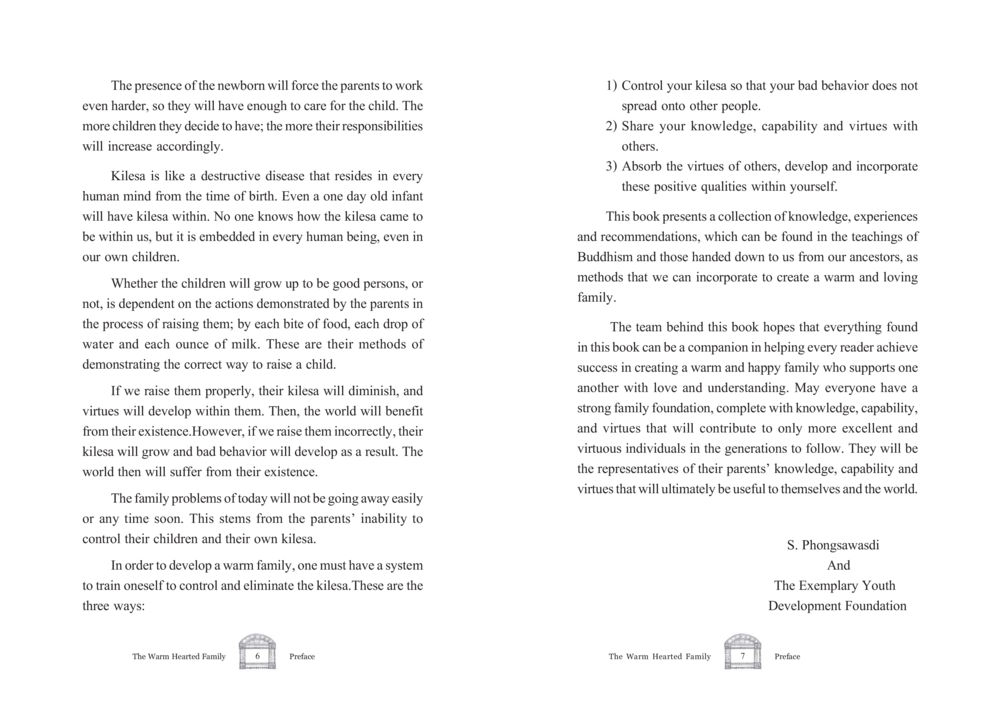The Impact of Parenting on Child Development : หน้า 4/207
The Warm Hearted Family : หน้า 4/207 Explore the role of parents in shaping their children's virtues and kilesa, ensuring a future of strong family values and societal contributions.
0 ครั้ง

สรุปเนื้อหา
This text discusses the critical impact of parental actions on a child's development. It introduces the concept of kilesa as a destructive force within everyone, including infants, and emphasizes the importance of proper upbringing to diminish kilesa and foster virtues. The authors propose three strategies for parents: controlling their own kilesa, sharing knowledge and virtues, and absorbing positive qualities from others. By incorporating these teachings, influenced by Buddhism, parents can create a loving family environment that nurtures future generations. Through cooperation and understanding, families can deliver exemplary individuals who will contribute positively to society, ensuring a legacy of knowledge and virtue.
หัวข้อประเด็น
-Impact of Parenting
-The Concept of Kilesa
-Strategies for Positive Upbringing
-Buddhism and Family Dynamics
-Creating a Supportive Family Environment
-Consequences of Parenting Styles
-Generational Virtue Development
ข้อความต้นฉบับในหน้า
หน้าหนังสือทั้งหมด















































































































































































































